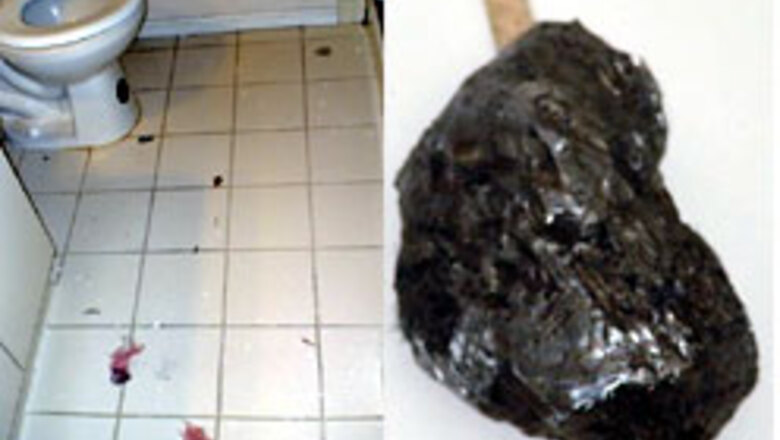
views
Freehold Township (New Jersey): A hole in the roof, a bathroom full of debris and a strange, silvery rock near the toilet - the Nageswaran family soon realised they needed an astronomer, not a contractor, to fully explain what damaged their house.
Scientists determined it was a meteorite that crashed through the roof of their central New Jersey home more than a week ago.
While extraterrestrial rocks fall to the Earth with some regularity, it is rare for them to strike homes.
"The fact that something from outer space hit our house it's overwhelming," Shankari Nageswaran said in an interview. She and her husband, Srinivasan Nageswaran, a 46-year-old consultant for information technology companies, are from India and have lived in Freehold Township since 2003.
On the night of January 2, Srinivasan Nageswaran walked into his bathroom and spotted a hole in the ceiling and small chunks of drywall and insulation littering the room.
The family initially thought an old patch job in the ceiling had come loose. The mystery deepened after Shankari Nageswaran started cleaning up. On the floor directly below the hole, under an evergreen bath mat, the tile was dented. There was another dent on the wall.
Near the back of the toilet, she found a metallic rock, about the same size and shape as the hole in the ceiling. The sparkly rock was the size of a golf ball but heavier at 13 ounces.
Two geologists from Rutgers University, along with an independent metallurgist concluded that the rock – tentatively named "Freehold Township" - was an iron meteorite.
Her husband shined a flashlight through the hole in the ceiling, then stuck a long stick in, and realised there was another hole in the roof.
It was not until the next morning that his father suggested the mysterious rock came from outer space, and they called police.
Two geologists from Rutgers University, along with an independent metallurgist, soon arrived. They concluded that the rock - tentatively named "Freehold Township" - was an iron meteorite.
"It could have done great damage and destruction," Srinivasn Nageswaran marveled. "It could have hurt our people."
About 50 meteorites reach the Earth's surface each year, but with humans occupying only a small part of the planet, there is only one report every year or two of meteorites hitting buildings, said Tim McCoy, curator of the Smithsonian Institution's meteorite collection.
Every meteorite serves as a "poor man's space probe," yielding information on how the solar system formed, McCoy said.
"There's been fewer than 5,000 meteorites found over the surface of the Earth in the recorded history of mankind," McCoy said.
"Every time we get a new one, it's an important event."
Meteorites that hit buildings can be sold for thousands of dollars.
The Nageswarans have not decided what to do with their meteorite, despite plenty of advice from family and friends. But they said they want to make sure that the rock, which they have locked up at a bank, serves an educational purpose.
















Comments
0 comment